Fleurs du Mal Magazine



Winter – A Dirge
The wintry west extends his blast,
And hail and rain does blaw;
Or, the stormy north sends driving forth
The blinding sleet and snaw:
While, tumbling brown, the burn comes down,
And roars frae bank to brae;
And bird and beast in covert rest,
And pass the heartless day.
“The sweeping blast, the sky o’ercast,”
The joyless winter-day
Let others fear, to me more dear
Than all the pride of May:
The tempest’s howl, it soothes my soul,
My griefs it seems to join;
The leafless trees my fancy please,
Their fate resembles mine!
Thou Power Supreme whose mighty scheme
These woes of mine fulfil,
Here, firm, I rest; they must be best,
Because they are Thy will!
Then all I want—O do Thou grant
This one request of mine.—
Since to enjoy Thou dost deny,
Assist me to resign.
Robert Burns
(1759 – 1796)
Winter – A Dirge
• fleursdumal.nl magazine
More in: # Classic Poetry Archive, 4SEASONS#Winter, Archive A-B, Archive A-B, Burns, Robert
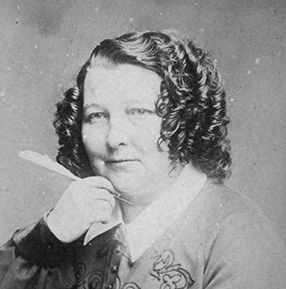
Winter
We know ’tis good that old Winter should come,
Roving awhile from his Lapland home;
’Tis fitting that we should hear the sound
Of his reindeer sledge on the slippery ground:
For his wide and glittering cloak of snow
Protects the seeds of life below;
Beneath his mantle are nurtured and born
The roots of the flowers, the germs of the corn.
The whistling tone of his pure strong breath
Rides purging the vapours of pestilent death.
I love him, I say, and avow it again,
For God’s wisdom and might show well in his train.
But the naked—the poor! I know they quail
With crouching limbs from the biting gale;
They pine and starve by the fireless hearth,
And weep as they gaze on the frost-bound earth.
Stand nobly forth, ye rich of the land,
With kindly heart and bounteous hand;
Remember ’tis now their season of need,
And a prayer for help is a call ye must heed.
A few of thy blessings, a tithe of thy gold,
Will save the young, and cherish the old.
’Tis a glorious task to work such good—
Do it, ye great ones! Ye can, and ye should.
He is not worthy to hold from heaven
The trust reposed, the talents given,
Who will not add to the portion that’s scant,
In the pinching hours of cold and want.
Oh! listen in mercy, ye sons of wealth,
Basking in comfort and glowing with health;
Give whate’er ye can spare, and be ye sure
He serveth his Maker who aideth the poor.
Eliza Cook
(1818 – 1889}
Winter
From: Melaia and Other Poems (1840)
• fleursdumal.nl magazine
More in: # Classic Poetry Archive, 4SEASONS#Winter, Archive C-D, Archive C-D
En créant en 1635 un jardin des plantes médicinales à Paris, directement placé sous son autorité, Louis XIII fonde non seulement l’une des plus anciennes institutions scientifiques de France avant l’Académie des Sciences (1666) et l’Observatoire de Paris (1667), mais aussi l’une des plus modernes.
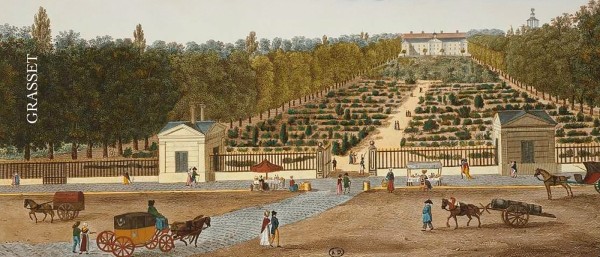
Des cours gratuits, donnés en français et non plus en latin au tout-venant : du jamais vu, qui fait froncer les sourcils à la Sorbonne! Car le succès est immédiat, les carabins s’en donnent à cœur-joie de disséquer des cadavres, de ridiculiser les Diafoirus, de découvrir une sexualité aux plantes: médecine et botanique ne font qu’un au XVIIème siècle et c’est le premier médecin du roi, Guy-Crescent Fagon, qui administre le jardin jusqu’à la fin du règne de Louis XIV.
Au XVIIIème siècle, c’est la surproduction de tout : des espèces végétales, animales et minérales rapportées par ces missions scientifiques qui sillonnent l’univers, des cabinets de curiosité des grands de ce monde, des touristes qui affluent de toute l’Europe au jardin des Plantes pour rencontrer Buffon, l’auteur d’un des best-sellers de son temps, une Histoire naturelle en 36 volumes qui ignore sèchement son contemporain, le savant suédois Carl von Linné dont la classification fait encore autorité.
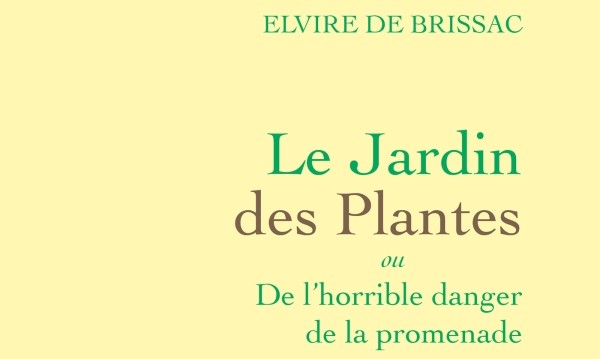
Nationalisé à la révolution, sauvé par Lakanal qui voit surtout son aspect éducatif, voici le jardin Royal transformé en muséum. Douze professeurs vont chacun occuper une chaire et administrer l’institution pendant deux cents ans et aucun des promeneurs, peintres ou écrivains qui découvrent avec délices au XIXème siècle la ménagerie, les grandes galeries, le jardin d’Acclimatation (1860), au bois de Boulogne, le musée d’Ethnographie, ancêtre du musée de l’Homme, au Trocadéro (1878) ou le zoo de Vincennes (1934) ne se doute des querelles qui agitent les coulisses de l’établissement et se nomment fixisme, transformisme, Darwinisme, colonialisme, adaptation ou refus de la révolution industrielle, déclin scientifique.
L’homme est-il un singe? La France apporte-t-elle aux peuples colonisés l’ombre ou la lumière? A quoi sert le muséum ? Comme la pluie qui tombe dans les grandes galeries, faute de crédits, après la Seconde Guerre mondiale et surtout après les Trente Glorieuses, l’histoire naturelle est-elle en train de tomber dans l’oubli?
L’ADN découvert en 1953, qui révèle tout de vous, de votre passé et de celui du vieux renard empaillé ou de la roche emprisonnée, fait-il encore de nous des être humains ? La numérisation viendra-t-elle à bout du trop plein des musées ? Va-t-elle rendre à leurs pays d’origine tout ce qui en a été emporté? Et la terre qui se décroche par mottes entières sous nos yeux, où va-t-elle? C’est dire qu’au XXIème siècle, le muséum a encore devant lui de beaux jours et de belles promenades parmi les dangers de la terre. « [Celle-ci] peut bien disparaître, disait August Strinberg en 1894, si le jardin des Plantes est épargné, la création sera sauvée. » Puisse l’avenir lui donner raison!
Le Jardin des Plantes
par Elvire de Brissac
Grasset Ed.
Paru le: 10 Janvier 2024
Format: 140 x 205 mm
304 pages
Ean: 9782246837244
Prix: € 22.00
• fleursdumal.nl magazine
More in: - Book News, - Bookstores, Archive A-B, Department of Curious Nature, Natural history, NONFICTION: ESSAYS & STORIES

Ich hab’s gewagt
Einst schrieb ich alles in Latein;
Nicht jedem konnt’s verständlich sein.
Nun ruf’ ich dich, mein Vaterland,
In deutscher Sprache wohlbekannt.
Laßt mich doch nicht alleine sprechen!
Jetzt ist es Zeit um loszubrechen,
Gemeinsam für die Freiheit streben!
Was war das bisher für ein Leben,
Kein Mensch durf’t mehr die Wahrheit sagen!
Steh auf, mein Volk! Nicht lange zagen,
Die Lügenherrschaft zu vertreiben!
Nur Wahrheit soll fortan noch bleiben.
Gott schenk’ dem Heil, der zu mir steht,
Damit sein Eifer nicht vergeht!
Manch Edler – hoff’ ich – hat den Mut,
Manch Graf, manch Bauersmann, so gut
Manch Bürger, der in seiner Stadt
Der Lebenslage übersatt –
Auf daß ich nicht alleine streite.
Wohlan, Gott ist auf uns’rer Seite!
Kein Deutscher bleibe still daheim!
„Ich hab’s gewagt!“ – das sei sein Reim.
Ulrich von Hutten
Ritter und Dichter
(* 21.04.1488, † 29.08.1523)
Ich hab’s gewagt!
• fleursdumal.nl magazine
More in: - Archive Tombeau de la jeunesse, Archive G-H, Archive G-H, Hutten, Ulrich von

1963
Destijds woonde ik in een land waar mijn jonge
oren luisterden naar zwakgewortelde preken, en
de kapelaan ons aanried aan kleine zonden niet
al te zwaar te tillen. Het was in de dagen dat we
nog wel eens holden en niet dachten aan talmen,
dat de waarheid alleen maar een voordeur had.
Bert Bevers
1963
Uit Bedekte termen, Stabilitas loci, Antwerpen, 2023
Voor bundel zie:
♦ https://www.amazon.nl/dp/B0C8QW1G9N
•fleursdumal.nl magazine
More in: Archive A-B, Archive A-B, Bedekte Termen, Bevers, Bert
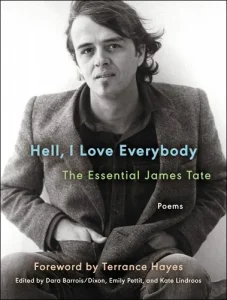
Hell, I Love Everybody.
An essential collection of James Tate’s extraordinary poems that will captivate today’s readers, with a foreword by Terrance Hayes
Celebrating James Tate’s work as it transcends convention, time, and everything that tells us, “No, you can’t do that,” Hell, I Love Everybody gives us the poet at his best, his most intimate, hopeful, inventive, and brilliant. John Ashbery called Tate the “poet of possibilities,” and this collection records forays into possibilities for American poetry’s future. With a foreword by Terrance Hayes, it is sure to give readers new and old a lasting collection of favorites.
James Tate was born in 1943 in Kansas City, Missouri. He earned a BA from Kansas State College and an MFA from the Iowa Writers’ Workshop. He was the author of over 20 poetry collections, including the posthumously published The Government Lake (2018); The Ghost Soldiers (2008); Worshipful Company of Fletchers (1994), which won the National Book Award; Selected Poems (1991), which won the Pulitzer Prize and the William Carlos Williams Award; Distance from Loved Ones (1990); Constant Defender (1983); Viper Jazz (1976); and The Oblivion Ha-Ha (1970). Tate died in 2015, at the age of 71.
James Tate’s poems have been awarded the National Book Award, the Pulitzer Prize, the Wallace Stevens Award, the William Carlos Williams Award, the Yale Younger Poets Award, and the National Institute of Arts and Letters Award, and have been translated across the globe. Tate was a member of the American Academy of Arts and Letters; his many collections include The Lost Pilot, The Oblivion Ha-Ha, Absences, Distance from Loved Ones, Worshipful Company of Fletchers, and The Ghost Soldiers. Born in Kansas City, Missouri, he made his home in Pelham, Massachusetts.
Terrance Hayes is the author of Lighthead, winner of the 2010 National Book Award and finalist for the National Book Critics Circle Award. His other books are Wind in a Box, Hip Logic, Muscular Music, and How to Be Drawn, which was a finalist for the 2015 National Book Award and received the 2016 NAACP Image Award for Poetry. His honors include a National Endowment for the Arts Fellowship, a Guggenheim Fellowship, and a 2014 MacArthur Fellowship.
Hell, I love everybody
An essential collection of James Tate’s extraordinary poems
hat will captivate todays readers,
with an introduction by Terrance Hayes
Publisher: Ecco Press
Publish Date: November 07, 2023
Pages 112
Dimensions 5.3 X 7.1 X 0.3 inches
Language English
Type Paperback
EAN/UPC 9780063306073
Price $17.99
• fleursdumal.nl magazine
More in: #Editors Choice Archiv, - Book News, - Bookstores, Archive S-T, Archive S-T

I Thought of You
I thought of you and how you love this beauty,
And walking up the long beach all alone
I heard the waves breaking in measured thunder
As you and I once heard their monotone.
Around me were the echoing dunes, beyond me
The cold and sparkling silver of the sea—
We two will pass through death and ages lengthen
Before you hear that sound again with me.
Sara Teasdale
(1884-1933)
I Thought of You
from: Flame and Shadow
• fleursdumal.nl magazine
More in: #Editors Choice Archiv, Archive S-T, Archive S-T, Teasdale, Sara
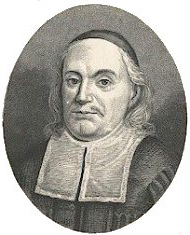
Ich hab oft
bei mir selbst gedacht
Ich hab oft bei mir selbst gedacht,
Wann ich den Lauf der Welt betracht,
Ob auch das Leben dieser Erd
Uns gut sei und des Wünschens wert,
Und ob nicht der viel besser tu,
Der sich fein zeitlich legt zur Ruh.
Denn, Lieber, denk und sage mir:
Was für ein Stand ist wohl allhier,
Dem nicht sein Angst, sein Schmerz und Weh
Alltäglich überm Haupte steh?
Ist auch ein Ort, der Kummers frei
Und ohne Klag und Sorgen sei?
Sieh unsers ganzen Lebens Lauf:
Ist auch ein Tag von Jugend auf,
Der nicht sein eigne Qual und Plag
Auf seinem Rücken mit sich trag?
Ist nicht die Freude, die uns stillt,
Auch selbst mit Jammer überfüllt?
Hat einer Glück und gute Zeit,
Hilf Gott, wie tobt und zürnt der Neid!
Hat einer Ehr und große Würd,
Ach, mit was großer Last und Bürd
Ist, der vor andern ist geehrt,
Vor andern auch dabei beschwert!
Ist einer heute gutes Muts,
Ergötzt und freut sich seines Guts:
Eh ers vermeint, fährt sein Gewinn
Zusamt dem guten Mute hin!
Wie plötzlich kommt ein Ungestüm
Und wirft die großen Güter üm!
Bist du denn fromm und fleuchst die Welt
Und liebst Gott mehr als Gold und Geld,
So wird dein Ruhm, dein Schmuck und Kron
In aller Welt zu Spott und Hohn;
Denn wer der Welt nicht heucheln kann,
Den sieht die Welt für albern an.
Nun, es ist wahr, es steht uns hier
Die Trübsal täglich vor der Tür,
Und findt ein jeder überall
Des Kreuzes Not und bittre Gall.
Sollt aber drum der Christen Licht
Ganz nichts mehr sein? Das glaub ich nicht.
Ein Christe, der an Christo klebt,
Und stets im Geist und Glauben lebt,
Dem kann kein Unglück, keine Pein
Im ganzen Leben schädlich sein;
Gehts ihm nicht allzeit wie es soll,
So ist ihm dennoch allzeit wohl.
Hat er nicht Gold, so hat er Gott,
Fragt nicht nach böser Leute Spott,
Verwirft mit Freuden und verlacht
Der Welt verkehrten Stolz und Pracht.
Sein Ehr ist Hoffnung und Geduld,
Sein Hoheit ist des Höchsten Huld.
Es weiß ein Christ und bleibt dabei,
Daß Gott sein Freund und Vater sei;
Er hau, er brenn, er stech, er schneid,
Hier ist nichts, das uns von ihm scheid,
Je mehr er schlägt, je mehr er liebt,
Bleibt fromm, ob er uns gleich betrübt.
Laß alles fallen, wie es fällt:
Wer Christi Lieb im Herzen hält,
Der ist ein Held und bleibt bestehn,
Wann Erd und Himmel untergehn;
Und wann ihn alle Welt verläßt,
Hält Gottes Wort ihn steif und fest.
Des Höchsten Wort dämpft alles Leid
Und kehrts in lauter Lust und Freud;
Es nimmt dem Unglück alles Gift,
Daß, obs uns gleich verfolgt und trifft,
Es dennoch unser Herze nie
In allzu große Trauer zieh.
Ei nun, so mäßge deine Klag!
Ist dieses Leben voller Plag,
Ists dennoch an der Christen Teil
Auch voller Gottes Schutz und Heil.
Wer Gott vertraut und Christum ehrt,
Der bleibt im Kreuz auch unversehrt.
Gleichwie das Gold durchs Feuer geht
Und in dem Ofen wohl besteht,
So bleibt ein Christ durch Gottes Gnad
Im Elendsofen ohne Schad;
Ein Kind bleibt seines Vaters Kind,
Obs gleich des Vaters Zucht empfindt.
Drum, liebes Herz, sei ohne Scheu
Und sieh auf deines Vaters Treu!
Empfindst du auch hier seine Rut,
Er meints nicht bös, es ist dir gut!
Gib dich getrost in seine Händ,
Es nimmt zuletzt ein gutes End.
Leb immerhin, so lang er will!
Ists Leben schwer, so sei du still,
Es geht zuletzt in Freuden aus:
Im Himmel ist ein schönes Haus,
Da, wer nach Christo hier gestrebt,
Mit Christi Engeln ewig lebt!
Paul Gerhardt
(1607 – 1676)
Ich hab oft bei mir selbst gedacht
• fleursdumal.nl magazine
More in: # Classic Poetry Archive, Archive G-H, Archive G-H

The Knife
Can I explain this to you? Your eyes
are entrances the mouths of caves
I issue from wonderful interiors
upon a blessed sea and a fine day,
from inside these caves I look and dream.
Your hair explicable as a waterfall
in some black liquid cooled by legend
fell across my thought in a moment
became a garment I am naked without
lines drawn across through morning and evening.
And in your body each minute I died
moving your thigh could disinter me
from a grave in a distant city:
your breasts deserted by cloth, clothed in twilight
filled me with tears, sweet cups of flesh.
Yes, to touch two fingers made us worlds
stars, waters, promontories, chaos
swooning in elements without form or time
come down through long seas among sea marvels
embracing like survivors in our islands.
This I think happened to us together
though now no shadow of it flickers in your hands
your eyes look down on ordinary streets
If I talk to you I might be a bird
with a message, a dead man, a photograph.
Keith Douglas
(1920 – 1944)
The Knife
• fleursdumal.nl magazine
More in: Archive C-D, Archive C-D, Douglas, Keith, WAR & PEACE

Intrede
As van kerstdromen
dwarrelt door de lucht
naast spokend karkas van
te jong gestorven boom.
Afvallige dozen, groot
fladderen over de weg
als losgebroken vogels
een paard zonder toom.
Aan slierten rouw klampt
oude jaar zich nog vast
gelijk geest die vergaat
het aanzien niet waard.
Rode ogen hoog boven
zwarte regenjassen staren
ins graue hinein tot de
eerste schok is bedaard.
Freda Kamphuis
Intrede
Gedicht uit poëziebundel :
TITEL, Uitgeverij Voetnoot, Antwerpen, 2014
•fleursdumal.nl magazine
More in: Archive K-L, Archive K-L, Kamphuis, Freda

Hoe het kan gaan
Ik hoor een man zeggen hoe hij vernomen had
dat zijn moeder begraven gaat worden en dat
hij in een stoffig album wel foto’s van haar zou
gaan bekijken. Erheen? Neen. Want zij. Toen
hij. Te lang. En daarna. Zijn smoesjes buitelen
over elkaar heen als lottoballetjes in de trommel.
Bert Bevers
Hoe het kan gaan
Gedicht
•fleursdumal.nl magazine
More in: Archive A-B, Archive A-B, Bevers, Bert
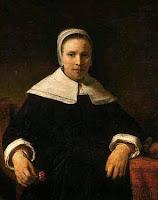
Winter
Cold, moist, young phlegmy winter now doth lie
In swaddling clouts, like new-born infancy;
Bound up with frosts, and fur’d with hail & snows,
And, like an infant, still it taller grows.
December is my first, and now the sun
To the southward Tropick his swift race doth run.
This month he’s hous’d in horned Capricorn,
From thence he ’gins to length the shortened morn,
Through Christendom with great festivity,
Now’s held (but guessed) for blest Nativity.
Cold, frozen January next comes in,
Chilling the blood, and shrinking up the skin.
In Aquarius now keeps the long-wish’d sun,
And northward his unwearied course doth run.
The day much longer than it was before,
The cold not lessened, but augmented more.
Now toes and ears, and fingers often freeze,
And travelers their noses sometimes leese.
Moist snowy February is my last,
I care not how the winter-time doth haste.
In Pisces now the golden sun doth shine,
And northward still approaches to the line.
The rivers ’gin to ope, the snows to melt,
And some warm glances from his face are felt;
Which is increased by the lengthen’d day,
Until by’s heat, he drive all cold away.
And thus the year in circle runneth round;
Where first it did begin, in th’ end its found.
Anne Bradstreet
(1612 – 1672)
Winter
• fleursdumal.nl magazine
More in: # Classic Poetry Archive, 4SEASONS#Winter, Archive A-B, Archive A-B, Bradstreet, Anne
Thank you for reading Fleurs du Mal - magazine for art & literature